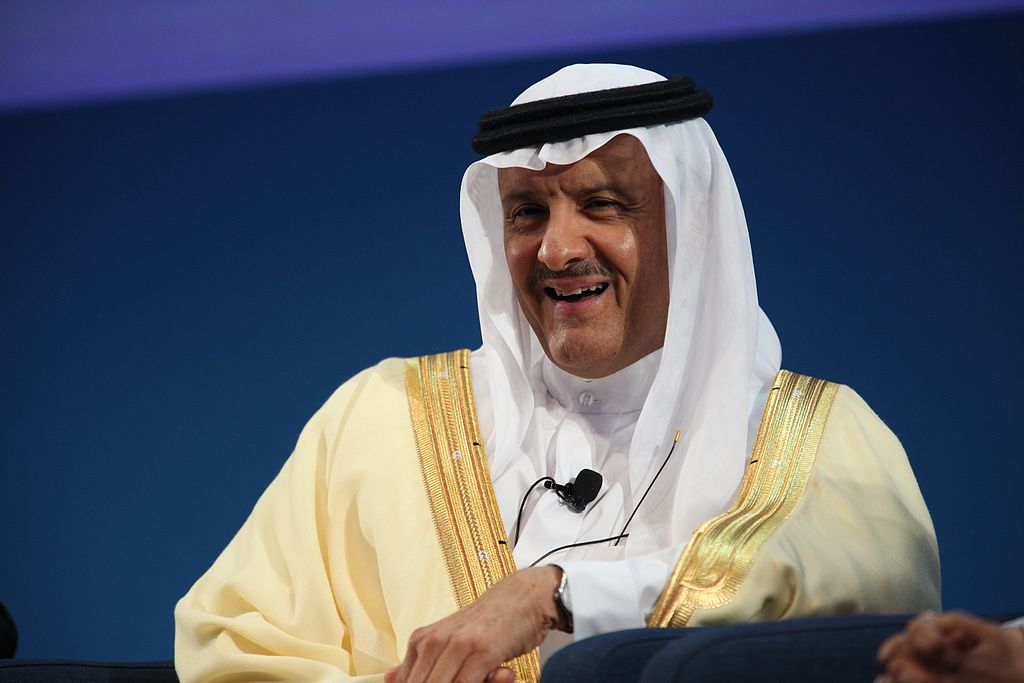“Can I ask my Dutch friends to phase out cows?”
This was a rhetorical question asked by Abdulaziz bin Salman Al Saud, the Saudi Arabian energy minister, during the opening of the 24th World Petroleum Congress.
The query summarized the prevailing theme of the conference, informally known as the Olympics of oil, that while everyone in the intentional oil industry is aware of the need to address climate change, it should not come at the cost of energy security or affordability — and that nations should be left to their own to find a route to net zero emissions.
Al Saud also stated that there is “no greater moral issue than lifting the world’s poor out of energy poverty.”
This concept was echoed by Joseph McMonigle, secretary general of the International Energy Forum, an international organization that aims to foster dialogue between its seventy-two members nations; “We must listen to the voice of the Global South, representing billions of people who (…) yearn to secure the standards of living enjoyed by those in the north,” McMonigle said while moderating the WPC’s first panel.
The idea that decarbonization efforts set by international agreement constitutes a new form of colonialism is not uncommon at industry events. “We’re dealing on a global level with a kind of recolonization where we’re talking about the use of natural resources in developing countries,” Norm Sacuta, director of communications for the Petroleum Technology Research Centre, said at a Carbon Capture Canada conference last week. “For us to be saying to developing countries like Nigeria or other countries that ‘You can’t use your resources anymore (…) because we’ve already burnt everything and you can’t burn yours,’ it’s a kind of injustice to them. And they’re saying, ‘That’s colonialism again, then we’re not going to deal with it.’”
Panelists talked about a “just transition,” but not in a way that addressed the outsized and devastating impact of climate disasters in the Global South. Instead participants focused on demand for oil and gas in developing nations. Questions about Indigenous opposition to resource exploitation in the Global South also went unaddressed.
Another theme repeated throughout the first day of the conference was the idea that the dates for which certain goals had been ascribed — such as net zero by 2050 — were either unrealistic or arbitrary. Amin Nasser, president and CEO of Aramco, spoke about the “trillema” of energy security, energy affordability, and climate change, arguing that all aspects of the problem deserved equal attention. “Without making sure that it [energy] is affordable and secure, you’re not going to have sustainability.”
Though delegates were all cognizant — and vocal — of their belief in the need to decarbonize and the value of renewable energy resources, all were bullish in their affirmation of continued high production of oil and gas for the foreseeable future, with some delegates indicating their belief high production levels will continue for many decades. All were convinced that carbon capture, utilization and sequestration technologies were the key to achieving net zero goals on any timeline, despite the considerable and well-documented deficiencies with the technology. Carbon capture was discussed almost exclusively as a means by which oil production could continue in an “ethical” manner, though there was no discussion of the emissions caused by actually combusting oil for energy or heat.
Security at the event was considerable, with uniformed Calgary police officers patrolling the grounds, exhibition halls and auditoriums. At least one canine bomb detection dog and its associated team was available on site, and the bulk of the delegates were kept far from the main hall, in a separate building on the grounds of Stampede Park. The city of Calgary spent over $11 million to secure the site.
On the eve of the conference about 300 protesters made their way from the Calgary Municipal Building to the Calgary Convention Centre. The protest was led by Dr. Joe Vipond, an emergency room physician and co-founder of the Calgary Climate Hub, a non-profit organization working to support meaningful local action on climate change. The protesters held a die-in in front of the convention centre, the site of the WPC’s opening ceremony. The protest was accompanied by a riot squad and plainclothes officers who marched with the protesters.
“When you actually look at the polling,” says Vipond, “Calgarians support strong climate action. And there is polling that came out this week from our organization, the Canadian Association of Physicians for the Environment, that said more than 60 percent of Albertans support a cap on the emissions of our major industry (…) I think you really have to separate what the citizens understand and believe and what the politicians and oil companies understand and believe. They’re not aligned.”
Subscribe to our newsletter
Stay up to date with DeSmog news and alerts







